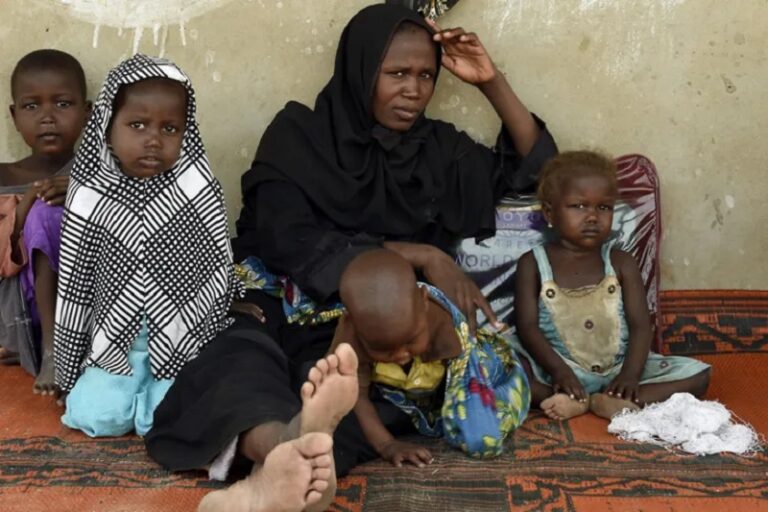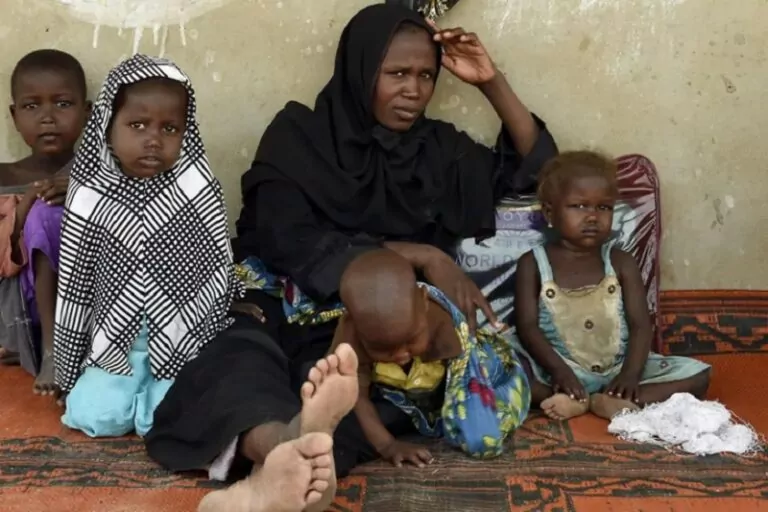

conflicts in central nigeria resulted in thousands of people fleeing as the death toll increased
After at least 85 people were killed in ongoing skirmishes between herders and farmers in central Nigeria, officials stated Thursday, May 18, that over 3,000 people had been forced to flee their homes as a result of the violence. The unrest broke out on Monday, May 15, with an early death toll of 30 in many communities in Plateau State. This is an area that has been struggling for years with ethnic and religious tensions.
According to local sources and witnesses, several villages in the Mangu district of Plateau State were still caught up in the violence on Thursday, and residents were fleeing. The situation is only one of the many threats to national security that President-elect Bola Tinubu, who will take over leadership of the most populous nation in Africa later this month, will face when he takes office.
It is now unknown what caused the atrocities that took place in Mangu this week; nevertheless, retaliatory killings between herders and farmers frequently escalate into village raids carried out by heavily armed gangs. According to the chairman of the local government council, Daput Minister Daniel, who spoke with AFP, 85 bodies were found and brought to safety.
Joseph Gwankat, a respected member of the community who is active in the Mwaghavul Development Association, echoed the same sentiments. According to what he told AFP, a search and rescue team “discovered 85 dead bodies.”
The National Emergency Management Agency (NEMA) reported that, as a direct result of the violence, hundreds of homes were destroyed and thousands of people were forced to seek refuge elsewhere. According to Eugene Nyelong, regional coordinator at NEMA, who spoke with AFP, “We got a total number of 3,683 (people) displaced,” and he said that emergency relief was on its way to those who were in need of it. According to what he said, more than 720 homes were either entirely or partially ruined by the storm.
As of Thursday, May 18, it remained unclear how many people had been hurt as a result of the incident. Nyelong from NEMA stated that an estimated 216 individuals were hurt as a result of the attacks, while Gwankat, the leader of the village, stated that there were 57 injured people now receiving treatment at the hospital.
According to the police, there were five people taken into custody in connection with the violence. “A heavy security presence has been deployed,” Alfred Alabo, a spokesman for the police, said. “It appears that for the time being, calm has been restored to the surrounding area.” However, Solomon Maren, a lawmaker in the House of Representatives who represents Mangu and the neighboring Bokkos, stated that there are still conflicts in the area.
Up until around two hours ago, there were gunshots heard. According to what he shared with AFP in the early afternoon on Thursday, people are fleeing for their lives. He stated that “hundreds” of people who are not native to the areas are carrying out the acts of violence and that these individuals are “armed to the teeth.” “We have 17 communities that have been annihilated in their whole… According to Maren, there have been over a hundred fatalities so far.
The State Emergency Management Agency (SEMA), which traveled to the region on Wednesday (May 17), characterized the current state of affairs as being extremely precarious. “We could see houses that were still burning,” Juni Bala, director of search and rescue for SEMA, told AFP. “We were able to access the area.” We were unable to proceed because the children and teenagers were upset.
“The circumstances on the ground are quite dire.” He stated that there were a large number of children as well as women traveling along the route. They require a place to sleep, food, bedding, and goods that are not consumable. The Nigerian chapter of the human rights organization Amnesty International issued a statement condemning the violence.
According to a tweet from Amnesty International Nigeria, “these despicable attacks took place at a time when the affected farming communities in Mangu were cultivating their farms and demonstrate complete disregard for human life.” “The authorities in Nigeria need to do more to protect the people and bring the actual perpetrators of these attacks to justice,” the author writes.
In recent weeks, there has been an increase in violence across Nigeria, following a brief period of peace during the presidential and state elections that took place in February and March, respectively. On Tuesday, gunmen ambushed a United States convoy that was traveling through the state of Anambra in southeast Nigeria. Police officers accompanied the convoy, which also contained locals. At least four of the travelers were killed in the incident.
In addition to this, the military is fighting a jihadist insurgency that has been going on for the past 14 years in the northeast, as well as piracy in the Gulf of Guinea and kidnappings carried out by armed criminals all across the nation.
Hilton launched Signia by Hilton for its first appearance in Egypt and Africa through its hotel expansions. These hotels at…
UNICEF reported that, nearly 2900 people died of cholera across Eastern and Southern African countries while children suffer most greatly…
Enza, based in the United Arab Emirates, obtained $6.75 million in initial investment funding from Algebra Ventures and Quona Capital.…
US Secretary of State Marco Rubio ordered South African Ambassador Ebrahim Rasool to leave America by March 21 because he…
Early 2025 ends with IPL fever in India and cricket fans receive good news of an international schedule full of…
National teams from Africa advance their World Cup qualification pursuit as they take part in Matchday 5 of the qualifiers.…
This website uses cookies.